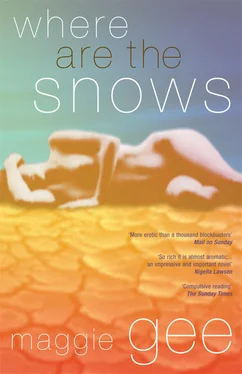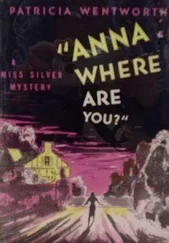And for the next two hours he did just that. He didn’t understand about talking and listening, men and women, give and take, even in the twenty-first century there are cave men still; yet his principles were wonderful; sharing, learning, avoiding exploitation, respecting others, respecting the earth.
The theory was not of much interest to me. I always go to sleep when men talk theory. But one thing was absolutely wonderful. He talked about a trip he made to the Himalayas.
They called themselves ‘green trekkers’. They went in a party, but they travelled light. They had all agreed not to ask for fires lest it encouraged the villagers to cut down trees. They ate the local food, they drank tea with yak butter. They walked everywhere or rode the tiny local ponies.
He began to speak like a painter. He printed this world on the indigo dark, I didn’t look at him, I looked at the sky and I saw them waiting in the very far distance, an endless succession of glimmering peaks, thousands of miles of untrampled snow, still lying there as night crept over, as the melancholy bells of the monasteries quietened, and the barking dogs, and the hooves of the ponies, everything muted by the fields of snow, lying behind and above it all, lying above us, silent, perfect, indifferent through the frozen night while the trekkers shivered and huddled together, still there in the morning, brightening to pure white light as the sun crept up…
Jean-Claude, or Jean-Pierre, was still there in the morning. Around 5 am he’d woken me to make love; it was brief and inefficient; then he sighed a lot. I thanked him, though, as I said he should go. I’d spent nearly a day without missing Anna Maria, or longing for a home that no longer existed.
He was in good spirits. He was very young. I don’t think he was very experienced; I don’t think he knew he was a very poor lover; for most men ignorance is bliss… (Christopher was a wonderful lover. My God, must I always think of Christopher?) I think he thought this had been an adventure. As he pulled his thin cotton jacket on, he smiled at me, and said — ‘I could be your guide in Paris. An authentic Parisian. The true reality.’
‘I’m not staying here. I’m going back.’ I had no idea where I was going as I said it. Then suddenly I knew. ‘I’m going to live in Mexico City. Not in a hotel, in a house. Alone.’
So I found this flat near the Alameda, in a reasonably scruffy tower block, not poor but not rich, comfortable. I wanted to be comfortable. I wanted to live abroad, not travel. I was tired. I knew it was time for a rest. I was fifty-five; time for a rest.
The flat is ordinary, that’s what I like, not particularly beautiful or interesting. I can live here without being looked at, without arousing curiosity or envy.
I can look across to Alameda Park. It’s only half-a-mile long, not nearly as big as the Bosque de Chapultepec over on the other side of the city; but it’s a real park, with seats and statues and ice cream vendors and shoeshine boys and women clutching mountainous bunches of balloons. And trees and flowers, though it looks brown in winter when the afternoon rainfall shrinks to nothing. There isn’t much green in Mexico City.
In the last five years, my neighbour Juanita tells me and I’ve seen some of it for myself, there’s been a lot of trouble over this park. This is the most crowded city in the world. Every day hundreds of new squatters stream in, hoping to make their living. Naturally, there’s nowhere for them to live, and the government is crippled with debt and can’t afford to build any more houses.
So the squatters decide to move in on the Park. They come in droves with their filthy belongings. They come with dogs and fleas and children. The police turn them away, of course, but not before they have painted slogans on the seats: HOMES NOT PARKS: PEOPLE NOT TREES: GIVE THE LAND TO THE PEOPLE.
And yet the Alameda is for the people. It’s ordinary people you see there every day, mothers with children, old men with papers, working women sitting on a bench in the lunch-hour with their chicken tacos and lemon agua fresca. I love the balloons. Those big surging bunches, shining and dancing like something alive.
I’ve never understood politicians — of course, I’ve never really thought about politics. But Juanita says there are politicians who are trying to make a name for themselves by saying we should build over the Alameda. They don’t believe it, they’re just making a point. ‘Everything’s got to be housing. They think you’re crazy if you talk about trees. We got so many people, you see, my darling…’
I can’t be bothered with the rights and wrongs of it. Manuel, my friend and occasional boyfriend who has a silver shop in the Zona Rosa, gets very angry with the squatters, although almost nothing makes him angry. I love the trees, but I’m quite sorry for the people, and sorry I have to think about them; that’s one of the problems of settling down; if you keep moving you never have to think.
I’ve grown very attached to that garden. Just one small window of air and light, then a jumble of buildings eats up the world all the way to its curving edge, which wavers in a greyblue haze. Not unattractive to the eye, but poisonous.
I’ve boxed myself in, I suppose. No easy exits from this city. Here I am, alone with myself at last, in the biggest city in the world.
— I’ve read. I’ve thought. I am capable of thought. I’ve written letters that I’ve never posted, to Mary, to Susy, to Christopher, even to the garrulous Parisian boy who started me thinking about our travels, but I tore that one up; it would make him vain, and he was quite vain enough already.
I’ve made some friends, just by staying put. Juanita, the retired teacher in the flat next door, who I thought at first was terribly dull because of her grey hair and matronly clothes, turned out to be kind-hearted and funny. She’s got a beaky face like a humorous parrot, flashing gold teeth when she laughs, which is often, and rather remarkable topaz eyes which it took me months to notice. She long ago despaired of Mexico City. ‘It’s dying, darling, you must see that; the more it grows, the sicker it gets; all cities are bad, but this one is madness.’
Yet the Alameda park survives. We admire it together as the seasons change, Juanita and I, my friend and I, from our adjoining fourth-floor balconies. Tiny people come and garden, watering and weeding, raking and planting, though the water supply is so often cut off, and official regulations ban hosepipes; but the gardeners keep on watering. No one has dared to build on it yet. It’s always there to welcome me when I open my curtains at six in the morning.
Juanita loves the garden too, though she wouldn’t put it in the same words. At first she used to laugh in a kind of uproarious terror if I said anything that might be called strange. I was the first Englishwoman she had really known. Occasionally we met down at ground level, in the ugly foyer by the creaking lift. I always made her stop and talk to me. She was a widow; I’d lost my husband. Single people need each other. I know she was sometimes lonely, too. We sat on a seat and watched the finches. She’d had three husbands, and five kids, but she’d never married her favourite lover. We laughed about sex, and men, and ageing. I confided in her when Manuel began to court me, poor formal Manuel with his passion for ties and his sweet temper and his love of sweet rolls.
One day I discovered we were both fifty-six, though at first I’d thought Juanita two decades older. I was mildly piqued that she wasn’t surprised. But later when I went and had a good look in the mirror, I saw how much I’d let myself change. There was no way back. One day I’d be sixty. Too old to look like a young girl. I couldn’t be bothered with makeup here; I’d let the grey grow into my hair; I didn’t know anywhere to buy the henna that Benjamin never knew I used.
Читать дальше












